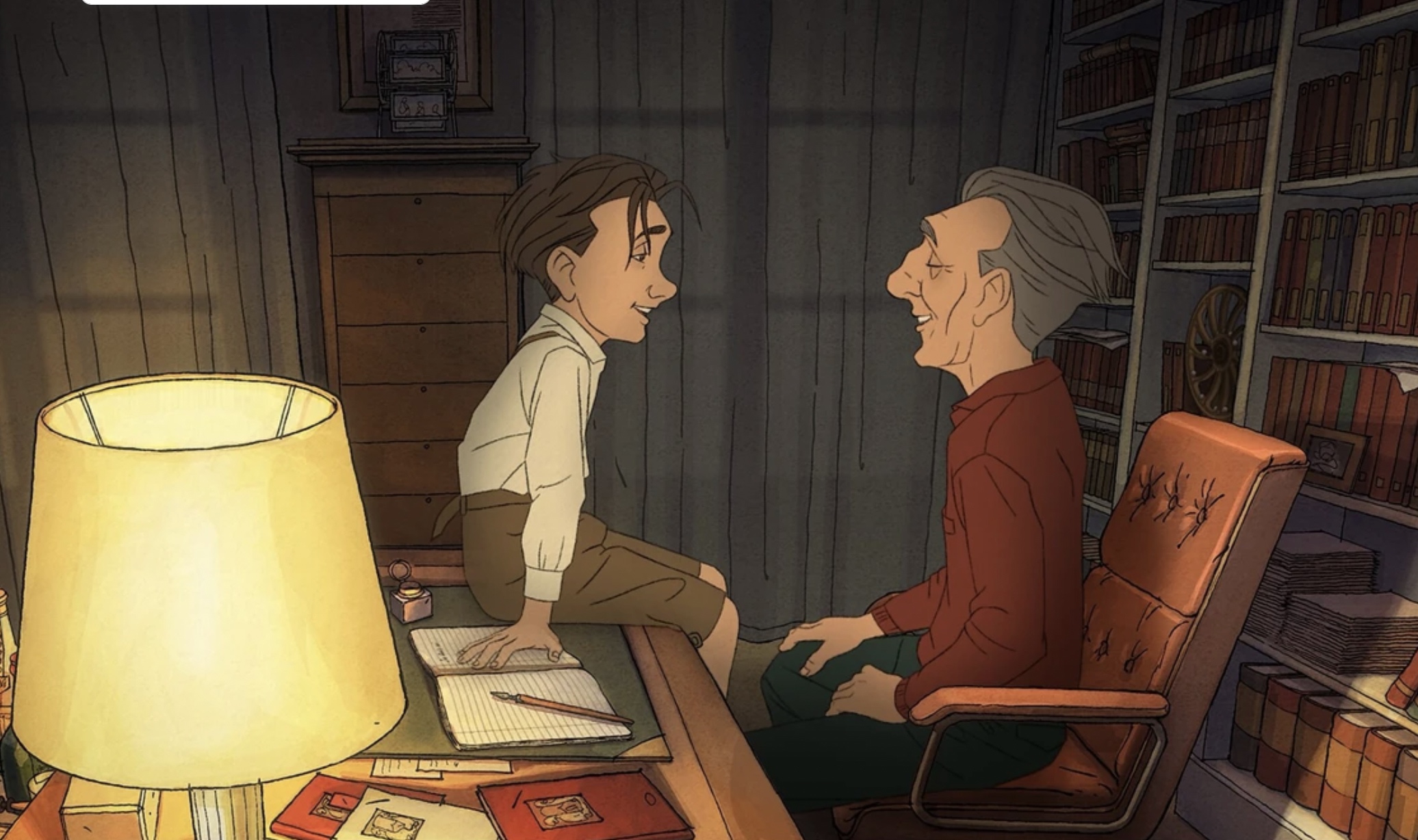
The first time that dissident Iranian filmmaker Jafar Panahi was imprisoned for his supposed crimes against the regime, he spent most of his time in solitary confinement, blindfolded whenever he was taken out to be interrogated. Deprived of the use of his eyes, Panahi focused all of his attention on his ears — he would obsessively listen for auditory clues around him, and fantasize about his captor’s identity based on the sound of his voice.
When Panahi was imprisoned again 12 years later, he was placed in the general population with 300 other prisoners, most of whom had opposed the government in one way or another, but few of whom agreed on the best tactic of doing so. The filmmaker was unnerved — and compelled — by the inevitability of those disagreements becoming even sharper between these people after they were released; some traumatized former detainees would simply try to get on with their lives, while others would be consumed with a rage that bent them toward revenge.
In his first project since the regime ostensibly lifted their restrictions on his art, Panahi draws from those very different prison experiences for a raw and blistering moral thriller about a hard-working Azeri man whose most tormented memories come rushing to the surface when he hears someone walk into his place of business with the same haunting squeak of his former torturer’s prosthetic right leg. Played by Vahid Mobasser, a TV station programmer and part-time cab driver, Vahid impulsively abducts the man (Ebrahim Azizi, the only professional actor in this extraordinary cast), drags him into the middle of the desert, and digs a hole big enough to bury his pain alive.
But — as he begins to suffocate the hostage under a small mountain of dry earth — Vahid is confronted with a stab of doubt. The man, whom we know to be the father of an adorable daughter and the husband of a very pregnant wife, insists that he doesn’t have any idea what Vahid is talking about; that he never worked in a prison, and only lost his leg in an accident the previous year.
Indeed, the scars in the flesh above his missing limb seem as if they’re still in the process of healing. And so, however cathartic it might be to simply commit murder and call it vengeance, Vahid feels as though he has no choice but to stuff the man into a wooden crate, load him into his minivan, and drive around Tehran in search of other ex-prisoners who might be able to help verify the captive’s identity.
So begins a gripping and tightly scripted misadventure that unfolds like something of a cross between Park Chan-wook’s “Lady Vengeance” and Panahi’s own “Taxi” (with a little “Waiting for Godot” thrown in for good measure), as Vahid’s one-man truth and reconciliation commission grows to include a handful of other people whose skin carries the scars of “Peg Leg’s” violence. Wedding photographer Shiva (Maryam Afshari, a karate referee in real life) is just starting to get her post-imprisonment career off the ground, but Vahid happens to find her while she’s in the middle of shooting bride-to-be Golrokh (stage actress Hadis Pakbaten) who she met while in jail, and feels her own burning desire for justice — even on the day before her nuptials. “It Was Just an Accident” is also the first Panahi feature to show female characters not wearing the mandatory hijab — Shiva among them — here to reflect the rapid changes of Iranian society post-Woman, Life, Freedom movement, where women rebelled against the morality police overseeing their oppression.
Ensconced in her wedding dress, and already in a very emotional state of mind, Golrokh demands to join the fact-finding mission, forcing her hapless groom to come along for the ride (he’s played by Panahi’s nephew Majid). The increasingly absurd crew is soon completed by the addition of Hamid (carpenter Mohamad Ali Elyasmehr), a splenetic livewire whose fury makes it difficult to trust his conviction that Vahid’s prisoner is the same man who terrorized these people when they were prisoners themselves.
From the plot description alone, it’s obvious that “It Was Just an Accident” finds Panahi working in a very different register than he had to while “banned” from making films — a period that saw his long-standing penchant for metafiction become considerably more pronounced, as he was forced to make himself the subject of iPhone/camcorder masterpieces like “This Is Not a Film.” This one still had to be shot in secret in order to skirt government approval, but it takes great pleasure in replacing the self-reflexivity of Panahi’s illegal work with a slightly more formal sense of composition, even if it remains impossible to separate the final product from the personal experience that informed it.
The difference is both immediate and also not. On the one hand, the opening scene begins in a car, the most familiar of locations in a filmography that has always shared Abbas Kiarostami’s fascination with automobiles as places that are both public and private all at once. The bruised, crisp, and vaguely Lynchian texture of the images, however, is worlds removed from Panahi’s usual aesthetic.
It’s late at night, and the man whom Vahid will soon take hostage is driving home with his wife and daughter when he runs over a dog in the road. It was, of course, just an accident, but the little girl in the backseat is furious with her dad all the same. “God simply put it in our path for a reason,” he rationalizes, before examining the animal’s carcass in a primordial flood of fluorescent red brake lights (an image that Panahi will recreate later to breathless effect). “God had nothing to do with it,” the child replies.
God’s role in the series of events that follows is similarly hard to divine, as it is only because of this fateful accident that the man pulls his car into Vahid’s warehouse. But despite its eventual willingness to resolve certain ambiguities, “It Was Just an Accident” derives so much of its throat-clenching power from the uncertainties at the heart of its premise. And not just the uncertainties, but also the overlapping truths — from the irreconcilable queasiness of existing in a country where the traumatized victims of the regime are forced to live as neighbors alongside the people who continue to enable it, with neither faction comfortable identifying themselves as such.
So much of this film’s urgency stems from Vahid’s panicked enthusiasm at connecting with other people who share, and can validate, the pain of his experience (he’s a stranger to the other characters, his meeting with Shiva facilitated by a mutual acquaintance from jail). But the pain of his experience — most acutely felt in Vahid’s kidney — is also enflamed into a new anguish by the group’s differing responses to the situation at hand. Some demand blood for blood while parroting the regime’s logic that executing an innocent man will guarantee him a spot in heaven. Others insist there’s no point, as any man guilty enough to be killed has already dug his own grave.
While the hostage spends most of the movie off-camera, his abductors are crammed into frames that contain all of their perspectives without privileging any of them. Uninterested in arguing that one response to a theocratic regime is superior to another (even if the filmmaker’s natural empathy insists on the kind of lenience that Hamid doesn’t want to hear), Panahi is instead compelled by how tempting it can be for the oppressed to adopt the same methods they suffered at the hands of their oppressor, and by the moral quagmire that results from diving into those waters. As one character sighs, “The deeper you go, the further you sink.” Or, as another character more bluntly offers: “What a heap of shit.”
But it’s the heap of shit that Vahid invites the rest of the film’s ensemble to help him shovel, and “It Was Just an Accident” only grows more queasily arresting as the gang is forced to confront the moral ambivalence that burying their hostage at the bottom of it might require. As part of that process, the ex-prisoners are eventually invited to perform a certain kindness for the same man they would like to condemn; the narrative convenience might strain credibility, but that’s a small price to pay for the unanswerable questions that it layers into Panahi’s film, effectively deepening a self-conflicted parable into something richer and less resolved.
Venom and mercy live side by side in Vahid’s heart in much the same way as he and his friends are made to live among the men who so brutally dehumanized them as enemies of the state. Panahi’s tense and woundingly distressed new film draws so much of its climactic power from the sense that hell will always follow Vahid like a whistle ringing in his ears, no matter what becomes of the man he’s abducted. And even more of it from the implication that heaven must therefore be hiding somewhere close by.
Grade: B+
“It Was Just an Accident” premiered in Competition at the 2025 Cannes Film Festival. It is currently seeking U.S. distribution.
Want to stay up to date on IndieWire’s film reviews and critical thoughts? Subscribe here to our newly launched newsletter, In Review by David Ehrlich, in which our Chief Film Critic and Head Reviews Editor rounds up the best new reviews and streaming picks along with some exclusive musings — all only available to subscribers.



